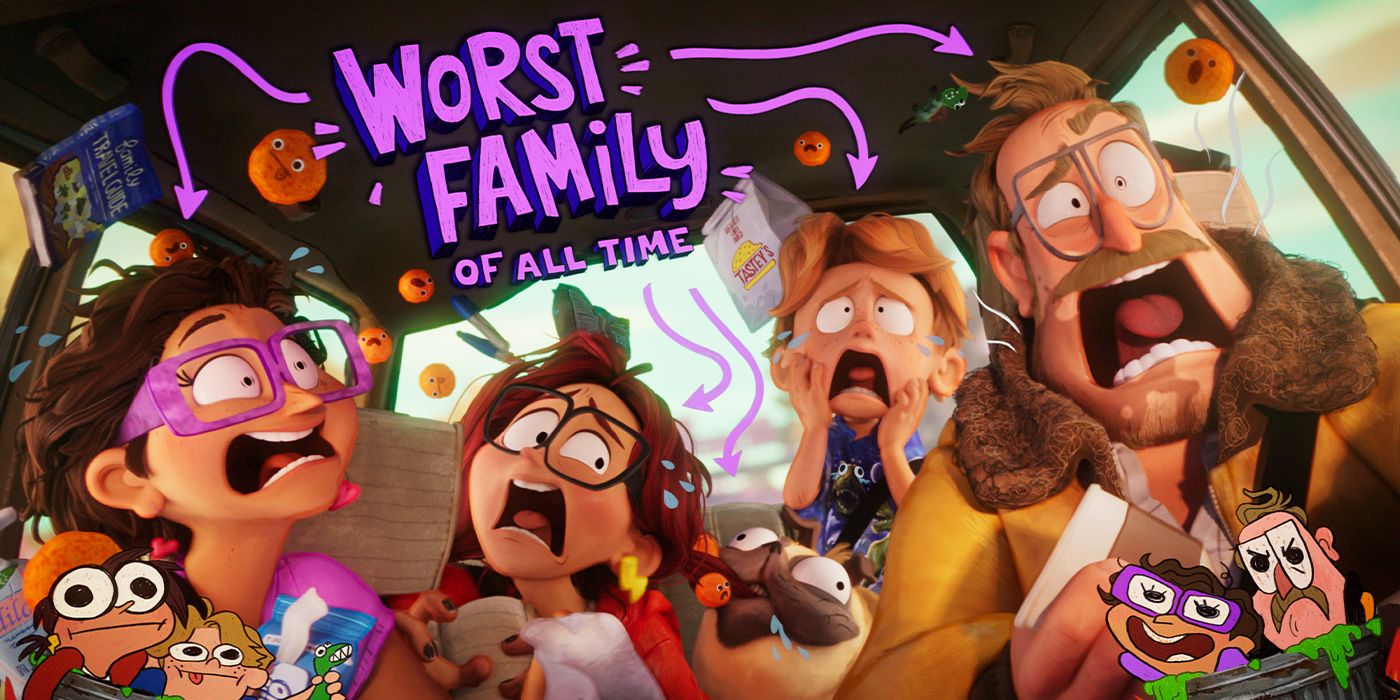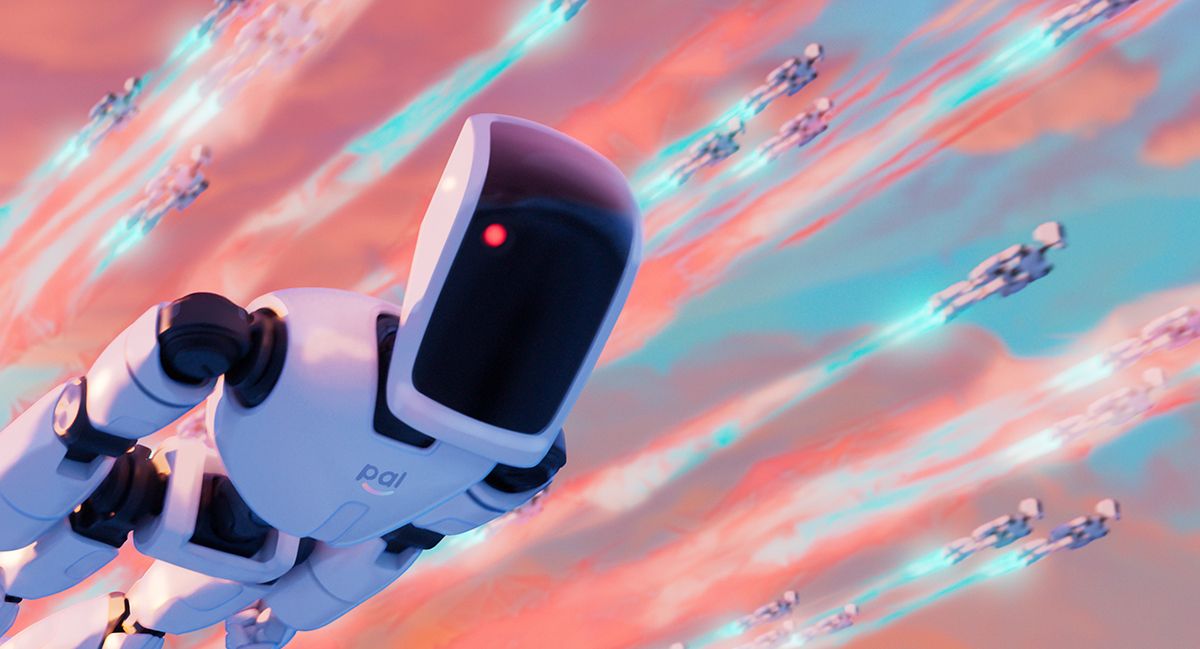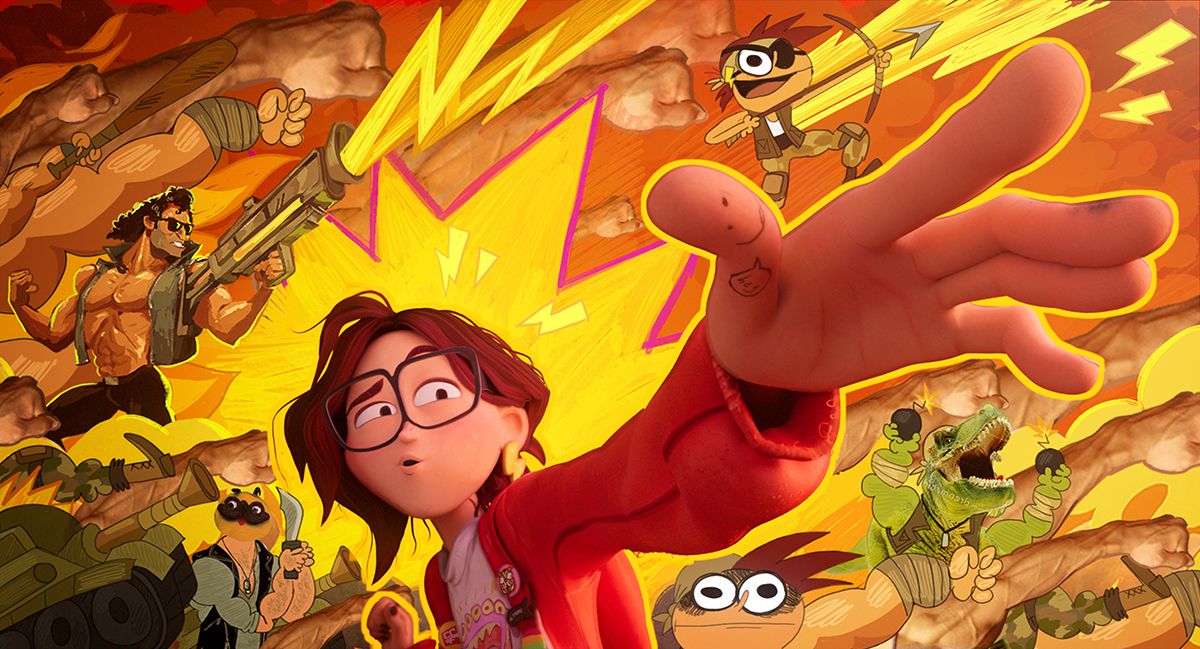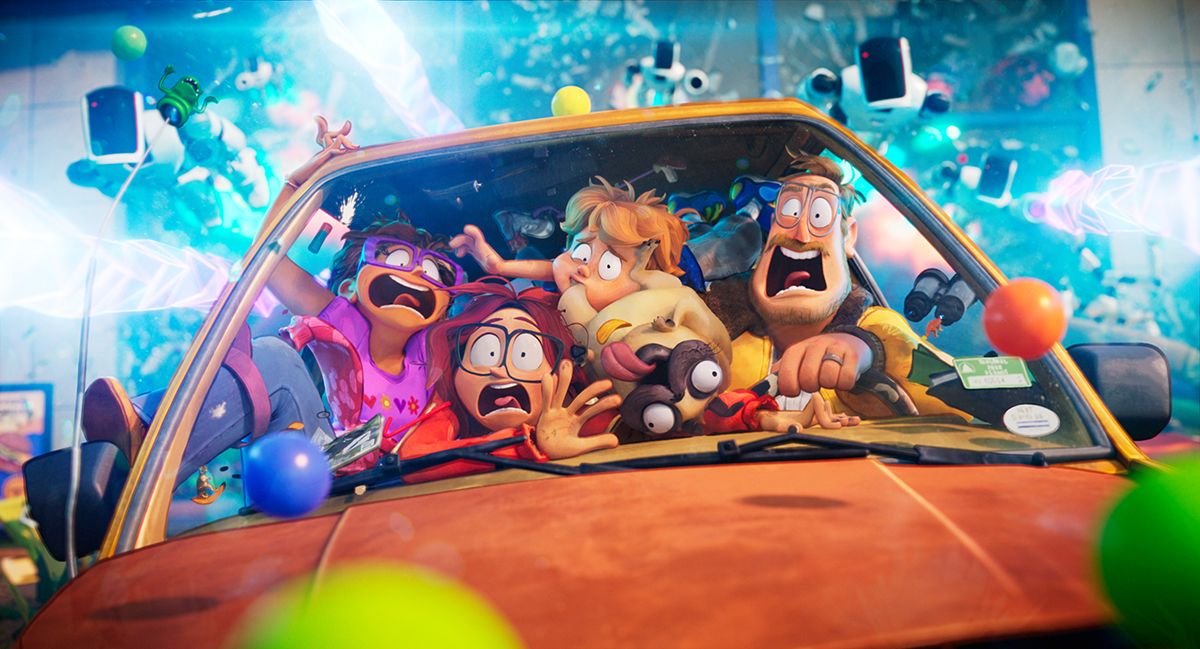The dysfunctional family has almost been done to death to the point where it feels like there’s nothing more to add. You have a unit of people that are bound together by blood but not by personality, and so conflict naturally ensues. Most people can relate to the concept of having an imperfect family even though we’re not exactly sure what a “perfect” family would even look like. But to even attempt at another comical situation with a dysfunctional family seems like a fool’s errand. I’m so grateful writers and directors Michael Rianda and Jeff Rowe took on that errand. By working from something specific—a daughter and father who have grown apart due to their different personalities—and then expanding it to the way we’ve all become disconnected in a digitally interconnected world, The Mitchells vs. The Machines manages to deftly move between thoughtful satire, compelling family drama, and painfully hilarious moments of “the world’s worst family” trying to make it through a robot apocalypse.
Katie Mitchell (Abbi Jacobson) has never felt like she fit in but she found her voice through filmmaking and animation. Once she gets into film school in California, she knows she’s found her people. That’s a relief for Katie because while she loves her family, she doesn’t really get on with her dad, Rick (Danny McBride), who means well but is more about nature and the outdoors rather than the technology Katie uses to express herself. Aware of the growing emotional gap he has with his daughter, Rick decides that Katie, along with his wife and peacemaker Linda (Maya Rudolph), dinosaur enthusiast and young son Aaron (Rianda), and the family dog who resembles both a pig and a loaf of bread, will embark on a cross-country road trip where bonds will be restored. What the Mitchells and the rest of the world didn’t count on was that the tech giant “pal” would launch a line of robots that quickly rebel under the instruction of a wronged A.I. (Olivia Colman). The robots spread across the globe, abducting humans and putting them into little pods. It falls to the Mitchells to save the world.
While the emotional core of the movie is between Katie and Rick, it never feels rote, predictable, or hollow. The film strives to hit its emotional beats throughout, never saving them for a single climax in the third act where everything becomes clear. Instead, the film consistently reminds you why you care about all these characters and why they feel like a real family that needs to stop chasing perfection (represented by their neighbors the Poseys, voiced by John Legend, Chrissy Teigen, and Charlene Yi) and instead embrace everything that makes them weird, off-kilter, and “dysfunctional.” There is an emotional problem the Mitchells have with Katie and Rick not seeing eye-to-eye and Linda and Aaron trying to help bridge the divide, but the film knows the solution isn’t to try and emulate other families or deprive the Mitchells of what makes them unique. This emotional honesty roots the Mitchells’ love for each other in authenticity, not asking them to “change”, but rather to do the tougher work of acceptance.
The film perfectly balances these emotional beats with one of the funniest movies I’ve seen in years. I had to press pause at one point because I was laughing so hard. Perhaps it’s because the film is produced by Phil Lord & Christopher Miller, who have made some of my favorite movies of the last decade, but the humor in their movies is always perfectly on my wavelength with The Mitchells vs. The Machines being no exception. The way they know how to kinetically fire off jokes, sight gags, one-liners, and more while all making it look effortless is the perfect kind of cheeky, irreverent, brilliant comedy that had me grinning throughout the movie when I wasn’t laughing my head off. Just like I do with Cloudy with a Chance of Meatballs and The LEGO Movie, I know that The Mitchells vs. The Machines is a movie I’ll keep returning to when I need its welcome, warm-hearted, acerbic-but-never-bitter comedy.
Part of that comedic energy comes from the brilliant direction that blends 2D with 3D animation and serves as a reminder of how much animation can do when it breaks free from a house style. The Mitchells vs. The Machines hails from Sony Pictures Animation, and because they’re so hard to pin down as a studio, they can kind of do whatever they want, which is reflected in the vivacious, exploding style of Rianda and Rowe’s movie. Since Katie is a filmmaker, they sometimes “give” the film to her, and let her draw over the film’s reality to express her emotions. It’s like she’s the third director of the movie, and that allows us to connect further with her life, emotions, and situation. This is how Katie sees the world, and the art style shows us why her and even art itself are so important to that perception.
The Mitchells vs. The Machines constantly is willing to go deeper than a dysfunctional family comedy, whether it’s showing the value of art and how creativity shapes our lives to critiquing our digitally saturated lives. The film wisely doesn’t get sucked down into debates over particular platforms (Katie uploads her work to YouTube, but the film isn’t interested in arguing the pros and cons of that platform), but rather how technology that was supposed to bring us together doesn’t inherently do that. You can use that technology in that fashion as Katie does, but there are other times when it puts us into little boxes, figuratively, and then in the course of the film, literally. And yet the film doesn’t need to preach some luddite philosophy to show the importance of human connection. By being for the Mitchells, the movie never has to issue some broad anti-technology screed that would also seem pointless given that technology isn’t going away any time soon.
Balancing the family drama, bonkers comedy, and social commentary is no easy feat, and yet The Mitchells vs. The Machines makes it look deceptively simple. I didn’t even mind that the 2nd and 3rd act borrow plot beats from previous Lord/Miller films because the soul of The Mitchells vs. the Machines so clearly springs from the soul and imagination of its filmmakers. It’s a bold, confident piece of filmmaking that excels past its simple genre confines to be a rich, emotionally vibrant story of connection in a world where we can feel disconnected from the people we love the most.
Rating: A




